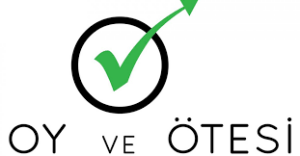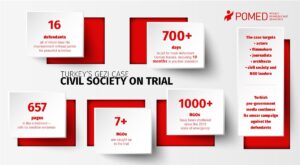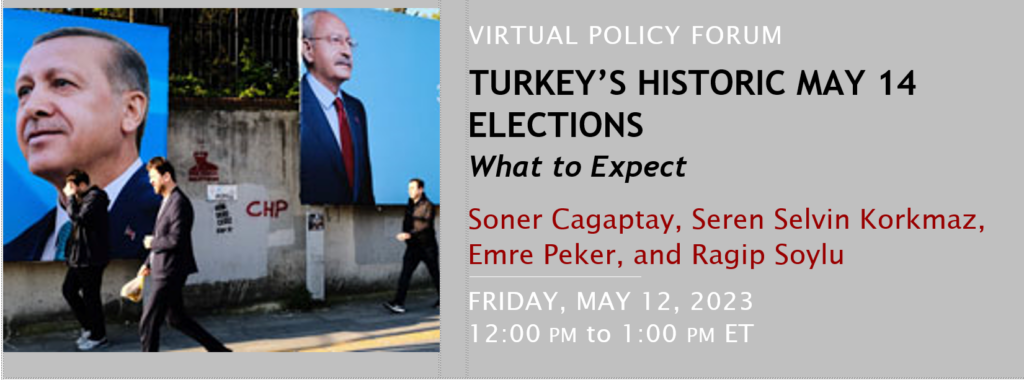The results of the presidential and parliamentary vote on May 14 will have profound consequences—not only for Turkish democracy, but for the geopolitics of the Middle East, Europe, and the United States, argues Philip Balboni, a PhD candidate at the University of California, Berkeley.
President Recep Tayyip Erdoğan and his Justice and Development Party (AKP) have held power for two decades. During that time, they have transformed the country’s political system, grown increasingly authoritarian, and failed to keep the economy prospering. The regime may be more vulnerable to defeat than ever. Yet the race remains neck and neck, he writes for the Journal of Democracy:
 The greatest obstacle for the opposition, however, may be the grievance still held by much of the population against the Kemalist hegemony—and against the party, the CHP, that long symbolized it. [CHP leader Kemal] Kılıçdaroğlu has been signaling a desire to acknowledge and make amends for the CHP’s past wrongs. His prospects and his party’s (and indeed the prospects of the opposition as a whole) rest on the willingness of historically non-CHP voters to believe that these gestures are sincere and that the CHP will embrace a more inclusive, pluralistic platform.
The greatest obstacle for the opposition, however, may be the grievance still held by much of the population against the Kemalist hegemony—and against the party, the CHP, that long symbolized it. [CHP leader Kemal] Kılıçdaroğlu has been signaling a desire to acknowledge and make amends for the CHP’s past wrongs. His prospects and his party’s (and indeed the prospects of the opposition as a whole) rest on the willingness of historically non-CHP voters to believe that these gestures are sincere and that the CHP will embrace a more inclusive, pluralistic platform.
In a new Video Q&A, “Safeguarding Turkey’s May Elections,” POMED’s Merve Tahiroğlu talks with Ertim Orkun of Oy Ve Ötesi (above), Turkey’s most prominent election monitoring NGO, about the organization’s plans and expectations for May 14.
 Erdogan is a master campaigner who uses state resources and events to reach supporters while Kilicdaroglu talks to voters in videos recorded in his kitchen, Suzan Frazer adds in The Post. As the polarizing Erdogan has grown increasingly authoritarian, Kilicdaroglu has built a reputation as a bridge builder and vows to restore democracy.
Erdogan is a master campaigner who uses state resources and events to reach supporters while Kilicdaroglu talks to voters in videos recorded in his kitchen, Suzan Frazer adds in The Post. As the polarizing Erdogan has grown increasingly authoritarian, Kilicdaroglu has built a reputation as a bridge builder and vows to restore democracy.
“These elections are about rebuilding Turkey,” Kilicdaroglu told a rally in the CHP stronghold of Izmir, western Turkey. “These elections are about reconciliation and not conflict. And these elections are about bringing democracy to Turkey.”

If Erdogan loses, will he step aside, or will he remain at the helm for life, folding the country’s remaining independent institutions under his control? If he wins, how will victory affect his transactional brand of foreign policy? Alternatively, what might Washington and Europe expect from a Kilicdaroglu presidency? The Washington Institute asks.
To discuss these and other issues on the eve of the vote, The Washington Institute hosts a virtual Policy Forum with Seren Selvin Korkmaz, Emre Peker, Ragip Soylu, and Soner Cagaptay, author of the new Institute paper “Turkey’s Pivotal 2023 Elections: Issues, Potential Outcomes, and What Comes After.”
Soner Cagaptay is the Beyer Family Fellow at The Washington Institute and director of its Turkish Research Program. His numerous publications on Turkish policy include the 2021 monograph A Sultan in Autumn: Erdogan Faces Turkey’s Uncontainable Forces. Seren Selvin Korkmaz is executive director of IstanPol, a political research institute in Istanbul. She is also a nonresident fellow with the Middle East Institute and a researcher with the Stockholm University Institute for Turkish Studies. Emre Peker is director for Europe at the Eurasia Group consultancy. Previously, he covered Turkey, NATO, and related issues for the Wall Street Journal, contributing to the team that produced Pulitzer Prize-nominated stories on the 2016 coup attempt and its aftermath. Ragip Soylu is the Turkey bureau chief for Middle East Eye. Previously, he worked as a correspondent for the Turkish media outlets Daily Sabah and ATV, based in Washington and London. RSVP
The greatest obstacle for #Turkey‘s opposition may be the grievance still held by much of the population against the Kemalist hegemony—and against the party, the CHP, that long symbolized it, #PhilipBalboni writes via @JoDemocracy. https://t.co/vv2Y86JYik
— Democracy Digest (@demdigest) May 2, 2023
As Erdoğan faces his most difficult challenge in two decades, what do the polls tell us? The Middle East Institute asks. What is the mood on the ground? What are parties doing to secure the ballot box? To address these questions and more, please join Gönül Tol. Director of MEI’s Turkey Program, for a discussion with scholars Seren Selvin Korkmaz, Can Selçuki, Murat Somer. May 11, 2023. 12:00 pm – 1:00 pm. RSVP







